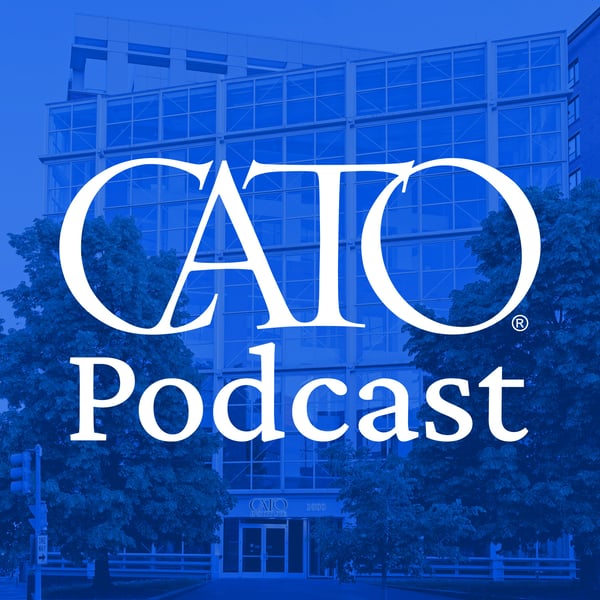Best of Cato Daily Podcast: Psychedelics and the Advance of Cognitive Liberty
Cato Podcast
Cato Institute
4.6 • 949 Ratings
🗓️ 16 June 2025
⏱️ 27 minutes
🧾️ Download transcript
Summary
Caleb O. Brown hosted the Cato Daily Podcast for nearly 18 years, producing well over 4000 episodes. He has gone on to head Kentucky’s Bluegrass Institute. This is one among the best episodes produced in his tenure, selected by the host and listeners.
Psychedelics have powerful impacts on the human mind, and researchers are finding new ways to use those drugs to help people overcome mental difficulties. Do they also herald a new freedom of thought? Mason Marks of the Petrie-Flom Center comments.
Hosted on Acast. See acast.com/privacy for more information.
Transcript
Click on a timestamp to play from that location
| 0:00.0 | This is longtime Cato Daily podcast host, Caleb Brown. |
| 0:02.9 | I've hosted the Cater Daily podcast for nearly 18 years, but no more. |
| 0:06.9 | But I wanted to leave loyal listeners with some favorite episodes that I hope ring true and relevant to our current moment. |
| 0:13.6 | This is one of them. |
| 0:14.8 | Thank you for listening. |
| 0:19.0 | This is the Cato Daily podcast for Monday, August 21st, 2003. |
| 0:23.8 | I'm Caleb Brown. |
| 0:25.0 | Is access to psychedelics and the consciousness-altering impacts they can foster a straightforward matter of cognitive liberty? |
| 0:33.3 | Mason Marks is a senior fellow and project lead on the project on psychedelic law and regulation at the Petrie Flom Center for Health Law Policy, Biotechnology, and Bioethics at Harvard Law School. |
| 0:45.3 | We talked about the ways in which psychedelics raise questions about what cognitive liberty really looks like and how that liberty might be reflected in the law going forward. |
| 0:54.5 | There was a lot of discussion about psychedelics for assisting people who are having, |
| 1:01.3 | I'm just going to just say mental difficulties, difficulties that may or may not be |
| 1:06.1 | physical in nature, but to help people grapple with those things and maybe either make different |
| 1:13.2 | decisions about how their lives are going or to effectively process some sort of trauma |
| 1:19.8 | that's occurred in their lives. And we're going to talk a little bit more about where that |
| 1:25.4 | conversation is right now. But you advocate something that I think is fairly provocative and is worth exploring, at least in the abstract initially, just and that is cognitive liberty and that people in some ways ought to have the ability to dramatically more |
| 1:47.3 | easily access these kinds of chemicals for the purposes of improving their lives. Can you |
| 1:55.4 | sort of spell out what you're advocating and where that fits in with what we understand about our liberties. |
| 2:03.3 | Absolutely. |
| 2:04.2 | Yes. |
| 2:04.5 | Certainly one of the most exciting applications of psychedelic substances is their use in mental |
| 2:10.3 | health care where they might dramatically improve our ability to help people with certain |
... |
Please login to see the full transcript.
Disclaimer: The podcast and artwork embedded on this page are from Cato Institute, and are the property of its owner and not affiliated with or endorsed by Tapesearch.
Generated transcripts are the property of Cato Institute and are distributed freely under the Fair Use doctrine. Transcripts generated by Tapesearch are not guaranteed to be accurate.
Copyright © Tapesearch 2025.

